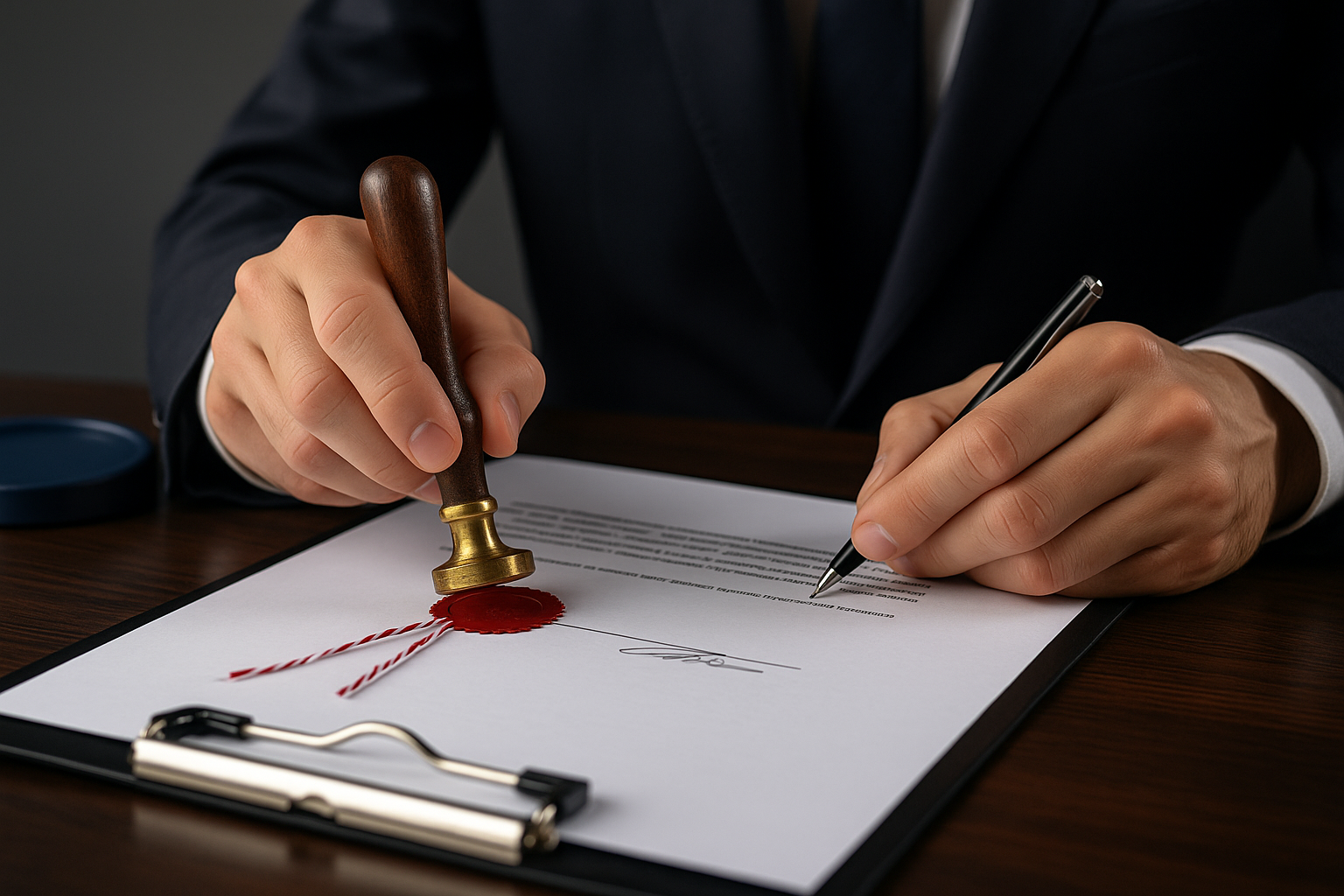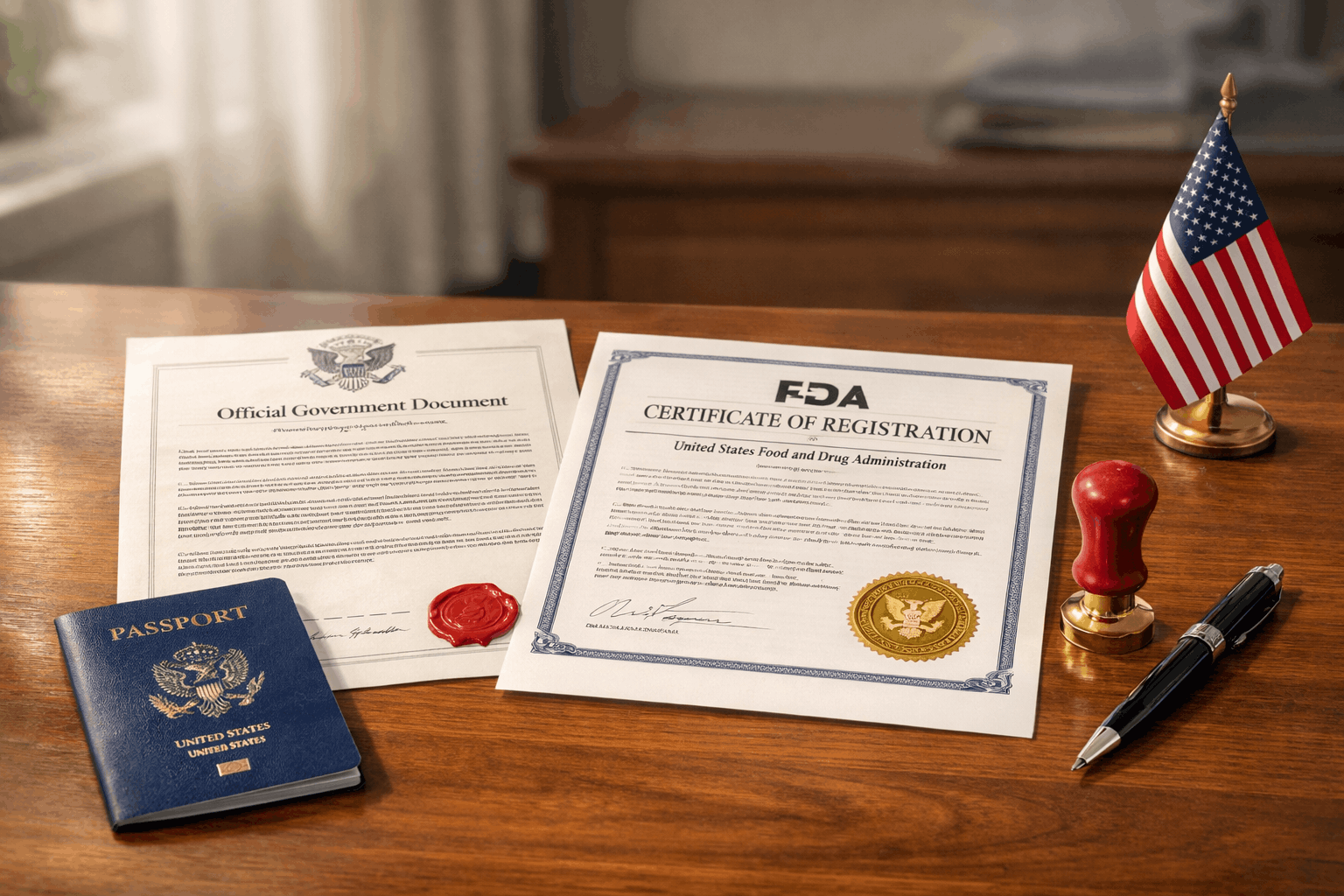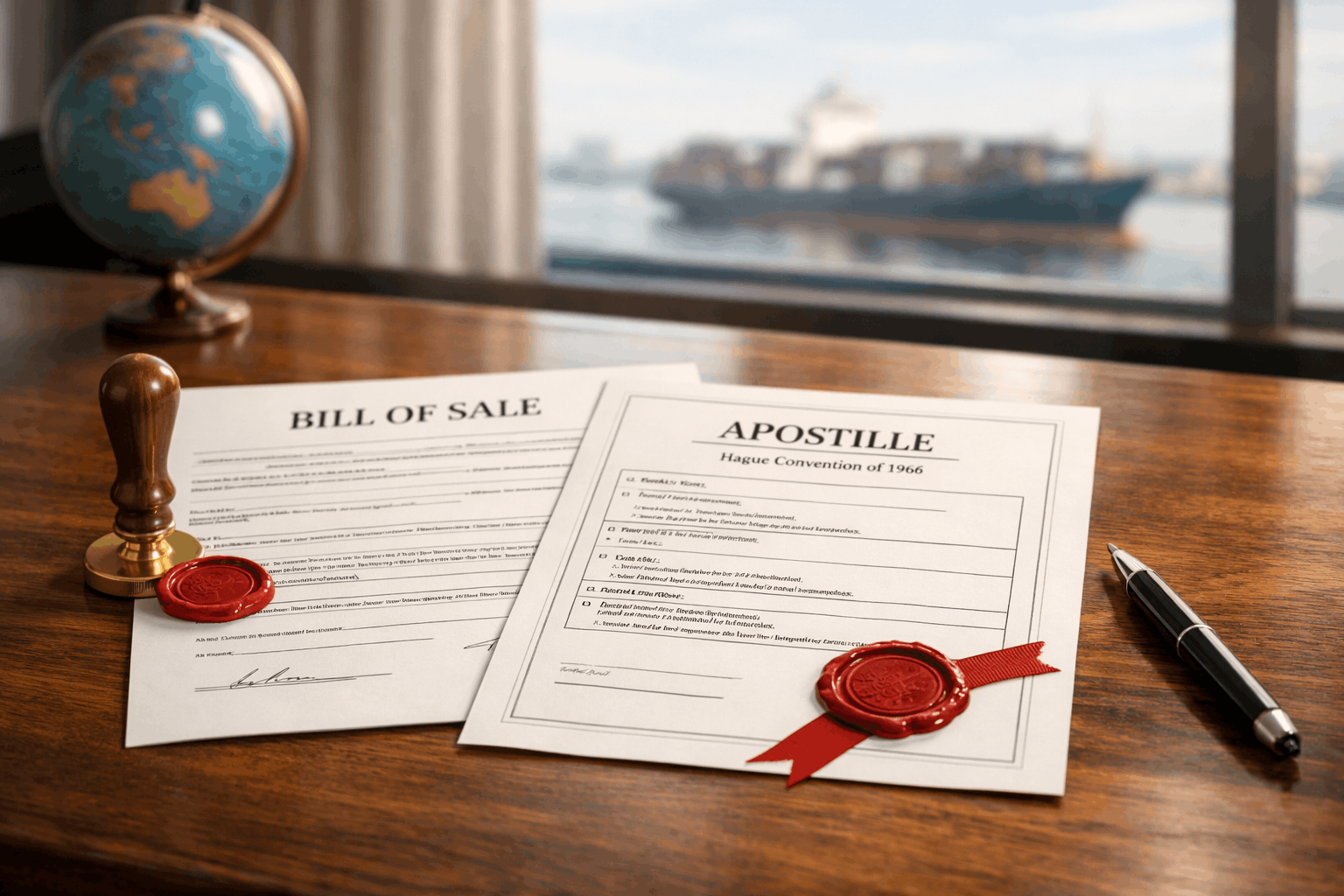
How to Authenticate or Apostille Adoption Documents?
Adopting a child is a wonderful moment, but navigating the complex paperwork can sometimes overshadow your joy, especially when dealing with international requirements. If you’re finalizing an adoption overseas, you might need to apostille your adoption certificates. But what does that actually require, and how can you begin the process?
Don’t worry — this guide will explain everything you need to know about apostilling adoption documents, from A to Z. Let’s make the legal process smooth and hassle-free!
What is an Adoption Apostille?
An adoption apostille is a form of validation that confirms the authenticity of your adoption documents. You can think of it as a government-approved endorsement attesting to the legitimacy of your paper — a birth certificate or adoption decree — for use in another country. For example, if you’re adopting abroad, an apostille is often required to ensure that your paperwork is legally valid.
What Adoption Documents Need to Be Apostilled or Authenticated?
The adoption documents required vary depending on your circumstances. That said, the most common documents for international adoption apostilles include:
- Birth certificates
- Final adoption decrees or court orders
- Marital status certificates (marriage, divorce, or single status affidavit)
- Home study reports
- FBI background checks
- Financial statements
- Medical examination reports
These documents play a crucial role in the adoption process, which is why they often need an apostille or authentication for international recognition. It’s important to check the specific requirements of the country where you are adopting, as each country has its own rules.
When Do You Need to Apostille or Authenticate Adoption Documents?
While not every adoption requires an apostille or authentication, it’s essential when adopting a child across borders. You’ll need these documents in situations such as finalizing an overseas adoption, relocating abroad with your adopted child, or enrolling them in school in another country. The key is to ensure that your adoption papers are recognized as official in foreign jurisdictions.
1. International Adoption Process
Document authentication is critical when bringing a child home from abroad. This step confirms that your adoption papers are genuine and accepted by foreign authorities. If your adoption documents lack an apostille or authentication, you may face legal hurdles, as the documents could be considered invalid.
2. Immigration, Citizenship, or Passport Applications
You may need to request an apostille for adoption documents when applying for your child’s visa, citizenship, or passport overseas. Authorities often require authenticated documents to verify the legal status of your adoption, which is essential for securing these benefits. Obtaining an apostille or authentication ensures a smooth transition for your adopted child across borders.
3. Moving/Relocating Abroad
If you plan to move abroad with your adopted child, having apostilled or authenticated documents will help establish the parent-child relationship with foreign government agencies. Without this verification, you may face bureaucratic delays as officials may not be able to confirm the authenticity of your adoption.
4. School or Legal Requirements
Whether you’re looking to enroll your child in a school or access healthcare abroad, apostilled adoption documents simplify the process of meeting legal requirements. This authentication step facilitates school admissions, medical treatments, inheritance matters, and other essential services.
How to Apostille Adoption Documents
Are you ready to get global recognition for your adoption documents that need an apostille? The process is simple if you know the essential steps, from gathering your documents to properly submitting them to the appropriate authority. Let’s break it down for a seamless experience!
1. Gather the Required Adoption Documents
Start by collecting the necessary documents — the adoption decree and the birth certificate, for instance. Ensure you verify the quality of these documents against the requirements of the destination country, such as whether they need to be originals or certified copies. Double-check the details on each document to avoid complications later on.
2. Check if the Destination Country is a Hague Convention Member
This important step helps you determine the type of verification you need. Conduct a quick search online to see if the country where you plan to send your adoption documents is a member. If it’s not a member, contact the country’s embassy for detailed instructions.
- For Hague Convention countries, request an apostille from the Secretary of State.
- For non-Hague Convention countries, request an authentication from the Secretary of State, and then apply for legalization at the embassy or consulate of the destination country.
Both apostille and authentication are verification methods, but each has a different process.
3. Notarize Documents (If Required)
Some states require notarization for issuing apostilles. If you’re unsure how to notarize adoption papers, the process is usually simple: visit a commissioned notary public in your state with your original documents and a valid ID. Also, always check your state’s guidelines first to ensure you’re notarizing your adoption papers correctly for apostilles. Government-issued documents, such as birth certificates or court orders, usually do not require notarization. However, documents like affidavits or statements often do.
4. Submit to the Correct Authority
Now it’s time to submit everything for apostille issuance. Send your adoption documents to the appropriate authentication office, typically the Secretary of State’s office where your documents were issued. You can either submit them by mail or drop them off for faster processing. Keep in mind that federal documents, such as FBI background checks, must be sent to the U.S. Department of State.
5. Pay Apostille Fees
Upon submission, don’t forget to pay the apostille fees. The expected budget ranges from $15 to $20 per document, and you can choose among credit cards, money orders, or cash as payment methods. Check the amount carefully to avoid delays caused by incorrect payments.
6. Processing Times
The processing time takes between 3 and 15 days, so patience is key. If you need your documents quickly, consider using expedited services or making a walk-in submission. Additionally, be aware of seasonal peaks, which can significantly extend the time required for apostille processing, allowing you to plan accordingly.
7. Receive Your Apostilled Document
Once your adoption document apostille is ready, it will be sent to you by mail or made available for pickup, based on your chosen delivery method. Before sending the papers abroad, inspect the affixed apostille for any errors in signatures or seals. With that checked, you’re all set for your international journey!
Where Can You Apostille Adoption Documents?
Depending on your needs, various agencies can assist you with the adoption document apostille process. While the Secretary of State is often the primary agency for apostille requests, other organizations may also be involved. Here’s a breakdown of the roles each plays to help you navigate the process more easily:
Apostille Service Providers
If you’re new to this and want a smooth experience from the start, professional services like EZ Apostille are ideal. Our experts handle everything, from gathering your adoption documents to delivering the apostille to your doorstep, saving you time and effort.
Secretary of State Offices
The Secretary of State is the main agency for apostilling most adoption documents issued in the state. They are responsible for verifying signatures and seals — whether from notaries, county clerks, or state officials — before attaching the apostille certificate to your documents.
Law Firm
Certain law firms specialize in assisting with international adoption. While their services may not be budget-friendly, they can expedite complex cases, especially those that are time-sensitive.
U.S. Department of State (For Authentication)
If the receiving country is not a member of the Hague Convention, you’ll need to obtain authentication for your adoption document — such as an FBI background check, as previously mentioned — from the U.S. Department of State.
Foreign Embassies or Consulates
Non-Hague countries require additional legalization from their embassy or consulate. This means that after having your adoption papers authenticated by the Secretary of State, you’ll need to submit a request for legalization to these foreign agencies.
Securing Your Family’s Future
Now that you’re equipped with the knowledge in this post, many global opportunities will open up for your family. Regardless of whether you are sending the papers to a member or a non-member of the Hague Convention, you don’t have to handle the paperwork alone. The right guidance from professional services helps you avoid the overwhelming burden of preparing documents for international adoption apostilles. Contact us, and we’ll handle all the details so you can move forward with confidence!
FAQs
How long does it take to apostille adoption documents?
Usually 3–15 business days for apostille processing, depending on the state. Expedited services may reduce the turnaround time to 1–3 days for an additional fee.
Can I apostille copies of adoption documents?
No, only original or certified/notarized copies of adoption documents qualify for apostilles.
What if my adoption was finalized in another country?
You might need to get an apostille or authentication from the specific country first. After that, submit a request for legalization at the receiving country’s embassy in case of authentication.
Can someone else submit documents on my behalf?
Yes, a family member or an authorized representative (such as a third-party service) can handle the submissions as long as they have all the required documents.
What’s the difference between an apostille and authentication for adoption documents?
Apostilles apply to Hague Convention countries. Authentication is typically required for non-Hague countries and involves both state and U.S. Department of State verification, followed by embassy legalization.





